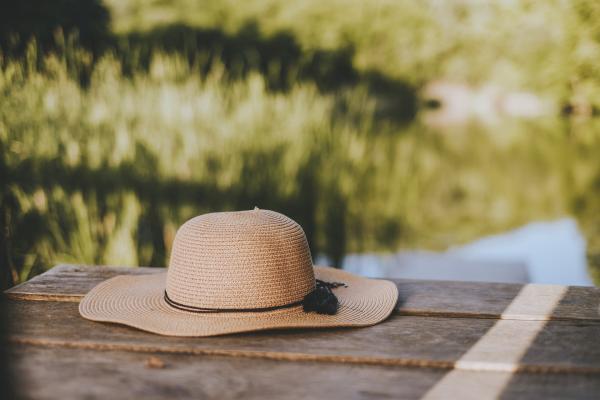August 29, 2022
Extreme Heat: Keeping Cool at Home and in the Community
Check out these heat-busting tips to help keep cool beyond the official end of summer!
Keeping our cool, physically and emotionally, is an important part of staying healthy and safe from the effects of extreme heat. If you’ve thought to yourself, “Will it ever cool down?” – you’re not alone. A group of oceanographers recently reported that between 1952 and 2011, the hot seasons grew from an average of 78 days to 95 days per year while seasons with cooler weather all got shorter.
But not all of us are impacted equally. The EPA has found that individuals with limited resources are more likely to be disproportionately impacted by heat stress. Extreme heat can also exacerbate existing health conditions, including asthma and hypertension.
These long heat waves have many of us looking for ways to keep cool long past the official end of summer… especially if we don’t have air conditioning. Here are some heat-busting tips that might work for you at home and in your community.
Keeping Cool at Home
1. Drink plenty of water. Fresh and canned fruits and vegetables contain water too. Reach for snacks like watermelon, oranges, and tomatoes.
2. Freeze a water bottle overnight to use as an ice pack to cool your forehead and neck during the day. (Cover it in a clean sock or small towel to protect your skin and absorb condensation.) You can freeze one to place near your pet’s bed or enclosure too. If you are experiencing power outages, avoid opening your freezer or refrigerator more than necessary.
3. Wear breathable clothing day and night and pick materials like cotton or linen. This will make it easier for air to evaporate your sweat, so you stay drier and more comfortable.
4. Prepare foods that do not require heat, like sandwiches, or cook hot foods in the morning and later in the evening when it is cooler outside. Try these cool cookout recipes – no grilling required!
5. Open a window on each side of the home during cooler times of day to create air movement if you have screens. Placing fans by windows will boost this air circulation. When it’s hot and sunny, cover windows to keep out the heat.
6. Remember that heat rises. This can mean people who live in the upper floors of an apartment building might be having an especially hard time in the heat. Find ways to get closer to ground level whenever possible.
Bonus: Turn on the vent fans in your bathroom and kitchen (if you have them) to remove hot air that has risen to the ceiling.
Keeping Cool in Your Community
1. Take the family to a free splash pad park or cooling center. Check your city or county website for information about splash pads and cooling centers near you. Or, cool off at a community-led splash space like the one created near Philadelphia by Tiffany Durkson, advocacy program manager at Studio Ludo and the Playbrary.
2. Try to plan your errands and outdoor activities around the cooler times in the day. Choose a shaded area for outdoor activities when it is available.
3. Spend the hottest parts of the day in a cool, safe community space, like your local library or a mall where you don’t feel pressured to shop. Many museums offer free admission days each month, and many libraries allow members to “check out” free or discounted passes to experience local culture, like tickets to museums, symphony performances, and more.
4. Wear a hat with a brim or carry an umbrella to shade yourself from the sun while you are out and about. This will help you keep cool and offer sun protection. To avoid sunburn, sunscreen with an SPF of 30 or higher is also important to wear anytime you go out.
5. High heat can make it harder for us to manage our feelings. If you or someone you are with is showing strong emotions in the heat, try to take a break from your interaction to move to a cooler place and get a drink of water, or move away from each other until you feel calm.
Preventing a Heat-Related Emergency
1. Never leave a person or pet in a parked car, even with the window open. Instead, bring them inside when you run errands if they cannot stay at home.
2. Check in with your friends and neighbors, especially elders, unsheltered neighbors, and families with young children. Let them know how they can check in with you, too, so that you can all help each other stay healthy.
3. Find a safe place to sit or lie down in an area with shade, water, and fresh air if you start to feel lightheaded or experience any other symptoms of heat exhaustion. Call for help if you are feeling unwell.
4. Be patient with yourself and others in the heat. High temperatures take a toll on our bodies and minds. Avoid tasks or activities that require extra concentration or could be risky.
Learn more about heat equity and find more heat and health information from heat.gov and the CDC.
-By Nicole Blanton





